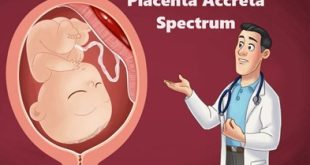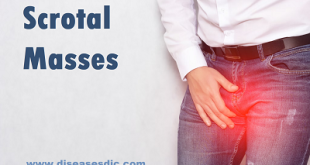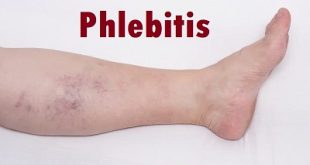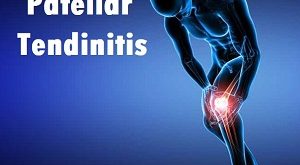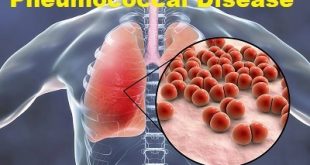Definition
Persistent genital arousal disorder (also known as persistent sexual arousal syndrome and restless genital syndrome) is defined as feelings of spontaneous, persistent and intense genital arousal with or without orgasm, with or without genital engorgement, in the absence of sexual desire. This rare and unique sexual arousal problem is extremely distressing for women who experience it and many do not report this sexual complaint to physicians because of embarrassment, humiliation, shame and frustration. Feelings of arousal are usually very powerful and extreme and persist for extended periods (hours, days or weeks).
Orgasm may provide several hours of relief but in most women with persistent genital arousal disorder the forceful arousal symptoms return quickly. Women who have persistent genital arousal disorder cannot concentrate on even mundane projects because it is impossible to ignore the constant arousal. Evaluation of a women suspected of having persistent sexual arousal syndrome involves a detailed psychologic evaluation, sexual, medical and psychosocial history, physical examination, laboratory tests of blood hormone levels and specialized testing of genital sensation and genital blood flow.
History
The earliest references to PGAD may be Greek descriptions of hyper sexuality (previously known as “satyriasis” and “nymphomania”), which confused persistent genital arousal with sexual insatiability. While PGAD involves the absence of sexual desire, hyper sexuality is characterized as heightened sexual desire.
The term persistent sexual arousal syndrome was coined by researchers Leiblum and Nathan in 2001. In 2006, Leiblum renamed the condition to “persistent genital arousal disorder” to indicate that genital arousal sensations are different from those that result from true sexual arousal. The rename was also considered to give the condition a better chance of being classified as a dysfunction
Epidemiology
PGAD prevalence seemed to be more common than suspected (1%). PGAD has officially been defined in terms of five diagnostic criteria. Patients were on average from 35 to 54 years old. Among them, 29.9% to 67% were menopausal. PGAD was highly associated with overactive bladder (OAB) (67%), restless legs syndrome (RLS) (67%) and pelvic varices (55%).
Risk factors of Persistent Genital Arousal Disorder
The risk factors for Persistent Genital Arousal Disorder may include:
- Increased intake of soy products
- Sacral spinal cysts (Tarlov cysts)
- Nerve injuries
- Restless leg syndrome
- Psychological disorders such as anxiety, panic, and depression
- Being on medications for psychological disorders (such as anti-depressants)
- Hyper-sensitivity to small changes in physical sensations
- Onset of menopause
- Overactive bladder
- Physical inactivity
Persistent Genital Arousal Disorder Causes
PGAD can have a number of causes, but a specific cause is often hard to diagnose.
The known Cause includes sexual stimulation, masturbation, anxiety, and stress. However, a non-sexual activity like going to the toilet may result in severe arousal as to be painful.
Most women do not understand their symptoms, therefore, even after careful assessment, no palpable cause is found. Nevertheless, there are some circumstances that accompany PGAD.
These may include but not limited to:
- Restless Legs Syndrome (sufferers usually have a feeling of needing to move the legs frequently, especially at night).
- Pudendal Neuralgia- Long-term pelvic pain that is instigated by damage or irritation of the pudendal nerve. The Pudendal Nerve is the nerve to the vulva, clitoris, and lower vagina.
- Overactive Bladder (an umbrella name for a group of urinary symptoms. It is not quite regarded as an illness. Accompanying common symptom is a sudden, uncontrolled need or urge voiding urine)
- Neurological disease, including Parkinson’s Disease, Epilepsy or Tarlov Cysts of the spine ( theses are fluid-filled sacs found on the sacral nerve root, this nerve is in charge of conveying information to the bladder, colon and genital areas;). A study found that, ‘’66% of women with PGAD presented with Tarlov cysts’’.
- History of Sexual Abuse- In these set of women, genital sensations, on the whole, may be unwelcome.
- Anxiety, depression, or Obsessive Compulsive Disorder;
Symptoms of Persistent Genital Arousal Disorder
Although PGAD is not currently an officially recognized disorder, researchers have proposed the following symptoms for persistent genital arousal disorder:
- Symptoms of physiologic sexual arousal (genital fullness or swelling and sensitivity with or without nipple fullness or swelling) that persist for hours or days and do not subside completely on their own
- These symptoms do not resolve with ordinary orgasmic experience and might require multiple orgasms over hours or days to remit (for some women, this might include spontaneous and intense orgasms different from deliberate orgasms resulting from sexual excitement and activity)
- Symptoms of arousal are usually experienced as unrelated to any subjective sense of sexual excitement or desire
- The persistent genital arousal can be triggered not only by a sexual activity but also by non-sexual stimuli or by no apparent stimulus at all
- Arousal symptoms feel unbidden, intrusive, uninvited, and unwanted, and the symptoms cause at least a moderate degree of distress
Complications of Persistent Genital Arousal Disorder
The complications of Persistent Genital Arousal Disorder may include:
- Embarrassment
- Emotional distress and stress
- Severe depression that may lead to suicidal thoughts
Complications may occur with or without treatment, and in some cases, due to treatment also.
Diagnosis and test
To diagnose PGAD, 5 different features should be present:
- The genital arousal should last for an extended time (hours to months)
- No other cause for genital arousal should be present
- The genital arousal should be unrelated to feelings of sexual desire
- The arousal sensation should feel intrusive and unwanted, and be associated with some distress
- The arousal sensation should persist, at least to some degree after orgasm
Distress is important in the diagnosis of PGAD, as there may be a set of women who experience sensations of genital arousal and find them neutral or even pleasurable and hence do not fit the criteria of PGAD.
Treatment and medications
Although research has not resulted in a ‘gold standard’ approach to managing PGAD, we have found the following treatments really helpful for patients suffering with PGAD:
Education: it is crucial to understand PGAD and what is contributing to your symptoms. Knowing more reduces the stress, anxiety and concern you have over your symptoms and starts to move you into positive action to manage PGAD.
Manual therapy: to relieve over activity or spasm in the internal or external pelvic floor muscles.
Home exercises: to give you targeted tools to manage and improve your symptoms at home. This may include strategies to relieve internal pelvic tension, stretch and release external pelvic muscle tension and mindfulness or meditation to calm down your nervous system.
Also: Avoiding tight clothing or sitting on vibrating platforms or bumpy car trips. These things may further trigger PGAD symptoms
There may be a need to use medications to assist your healing and recovery.
Here is some best medication that is used to cure PGAD:
- Fluoxetine, which is one of the serotonin reuptake inhibitor SSRI generally used to cure panic disorder, depressive disorder and bulimia.
- Clomipramine which is an antidepressant basically used to cure obsessive compulsive disorder (OCD)
- Lignocaine gel that is used to numb the area after it is applied
Best way to overcome PGAD
Many lubrications or gels or oils can help to aid such problem. These can be used for both women and men. However man have several gels or sprays that can improve healthy arousal. One of the best gel or oil, which can help men to sexually arouse on time, is by using VigRX Oil.
This is a natural supplement that increases seminal fluid and helps men to reduce the problem they are suffering from like PE or last longer in bed. This oil is just amazing as it fills with stamina, desire and more enjoyment.
 Diseases Treatments Dictionary This is complete solution to read all diseases treatments Which covers Prevention, Causes, Symptoms, Medical Terms, Drugs, Prescription, Natural Remedies with cures and Treatments. Most of the common diseases were listed in names, split with categories.
Diseases Treatments Dictionary This is complete solution to read all diseases treatments Which covers Prevention, Causes, Symptoms, Medical Terms, Drugs, Prescription, Natural Remedies with cures and Treatments. Most of the common diseases were listed in names, split with categories.
